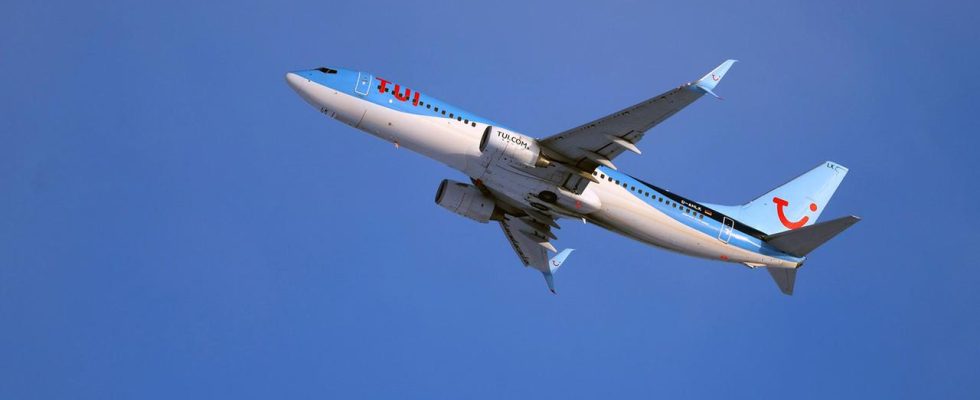After ten years on the London stock exchange, the travel group TUI is returning to the Frankfurt stock exchange. As of today, the Hanover-based company will once again be traded primarily in Germany.
When a listed company moves to another trading location, it has little to do with boxes and trucks. These days, the move is done electronically and almost unnoticed by shareholders. One company that has now made such a move is TUI: for the travel company, its presence on the British stock exchange ends after ten years.
But why were the shares of the company from Hanover actually listed in London until recently? Marc Tüngler, managing director of the Association for the Protection of Securities Holdings, looks back to 2014: “There was a merger between TUI and TUI Travel, a British company. And in order to make the merger attractive to the shareholders of the British company, they had a deal back then decided to give the shares to London.”
Greater demand in Germany
The TUI papers have recently been more in demand in Germany. The group points out that around three quarters of trading recently took place via the German share register. In view of this, investors have suggested changing the trading venue and giving up the main listing on the London Stock Exchange.
In February, shareholders voted almost unanimously in favor of the move at the general meeting. Tourism expert Michael Gierse from the fund company Union Investment welcomes the step. There is hardly any interest in the stock in England: “For everyone, this is a German stock with a stock exchange listing in London, and that’s not a good combination.”
New Business model
The new beginning on the Frankfurt Stock Exchange also fits the travel group’s business situation. TUI has had difficult years. The corona pandemic threatened bankruptcy. The state gave the company a helping hand. The travel company has now repaid the aid.
And the desire to travel is back again: TUI achieved record sales last year – and the start of the current financial year also went well: “There are still catch-up effects, and the limited capacities mean that places are scarce and prices are rising,” says Tourism analyst Michael Gierse from Union Investment. This in turn is of course good for TUI’s business.
But he also emphasizes that the group’s changed business model is making a positive contribution: “TUI no longer wants to own so many aircraft, ships and hotels, but is trying to outsource some of that.” At the same time, one should not lose access to these hotels, aircraft and cruise ships “in order to always be operationally flexible”.
Positive signal for Frankfurt
The travel company is preparing for the future and this also affects stock market events. The share has been hit by the crisis and is worth significantly less than it was five years ago. Recently, however, things have been looking up for TUI shareholders. Investor advocate Marc Tüngler sees the potential for TUI securities to continue to be in demand with the move to the German stock market.
The decision in favor of Frankfurt is also a positive signal for the entire location: “It gives you courage – almost euphoria – that the capital market in Germany is attractive,” said Tüngler. Recently there have been many companies that have said goodbye. “Now TUI is coming back. Overall, this can only be seen as positive, both for the capital market in Frankfurt and Germany as well as for TUI itself,” says the expert.
TUI’s move to the Frankfurt Stock Exchange has not yet been finally completed. Analysts expect inclusion in the MDAX in June. Then the travel company landed completely back on the German stage.
Sebastian Schreiber, HR, tagesschau, April 8, 2024 12:06 a.m

